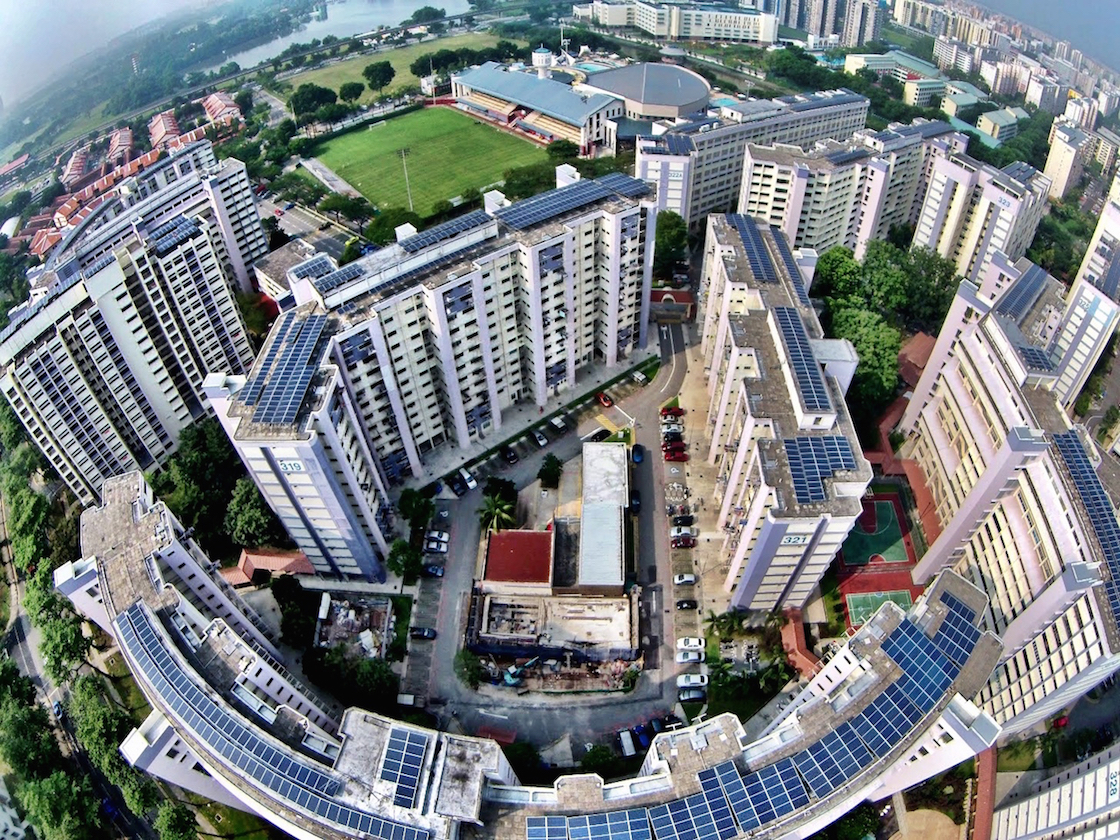Microsoft will draw some of the energy required to power cloud services for its customers in Southeast Asia with solar power, in a unique deal with developer Sunseap. Microsoft will procure 100% of the power produced by 60 MW of PV capacity, spread across many Singaporean rooftops.
The two companies have signed a 20-year PPA under the deal.
“With the agreement, Microsoft will improve the sustainability of our local operations and make important progress towards our corporate sustainability goals for datacentres,” said Kevin Wo, the Managing Director of Microsoft Singapore.
Sunseap co-founder and president, Lawrence Wu said that the project will “raise awareness” within the tech sector of the potential of solar in supplying its energy-hungry operations, such as datacenters.
“Their [Microsoft’s] investment in Singapore solar indicates a growing momentum for clean energy in country and will further the positive ripple effect for organisations in Singapore to incorporate sustainability practices in their businesses,” said Wu.
Popular content
The deal is not the first for Sunseap in supplying solar power to tech companies in Singapore. In 2015, the PV developer signed a deal with Apple, to supply it with solar power from a 1 MW on-site rooftop array and up to 40 GWh in the form of an offsite PPA. The deal allowed Apple to claim to be powered 100% by renewable energy in Singapore.
Both the Microsoft and Apple PV deals in Singapore demonstrate a significant level of innovation in delivering large volumes of solar capacity in a space-constrained environment. By pooling the production across many rooftop systems, Sunseap is able to achieve certain economies of scale, and provide reliable and affordable solar energy to large corporate offtakers.
“This landmark agreement marks yet another milestone in Singapore’s journey to grow the clean energy industry,” said Gian Yi-Hsen, from Singapore’s Economic Development Board (EDB). “We are seeing a distinctive trend of local and foreign companies using up to 100% renewable energy to power their business operations, and Singapore is positioning itself to serve that need.”
This content is protected by copyright and may not be reused. If you want to cooperate with us and would like to reuse some of our content, please contact: editors@pv-magazine.com.



By submitting this form you agree to pv magazine using your data for the purposes of publishing your comment.
Your personal data will only be disclosed or otherwise transmitted to third parties for the purposes of spam filtering or if this is necessary for technical maintenance of the website. Any other transfer to third parties will not take place unless this is justified on the basis of applicable data protection regulations or if pv magazine is legally obliged to do so.
You may revoke this consent at any time with effect for the future, in which case your personal data will be deleted immediately. Otherwise, your data will be deleted if pv magazine has processed your request or the purpose of data storage is fulfilled.
Further information on data privacy can be found in our Data Protection Policy.